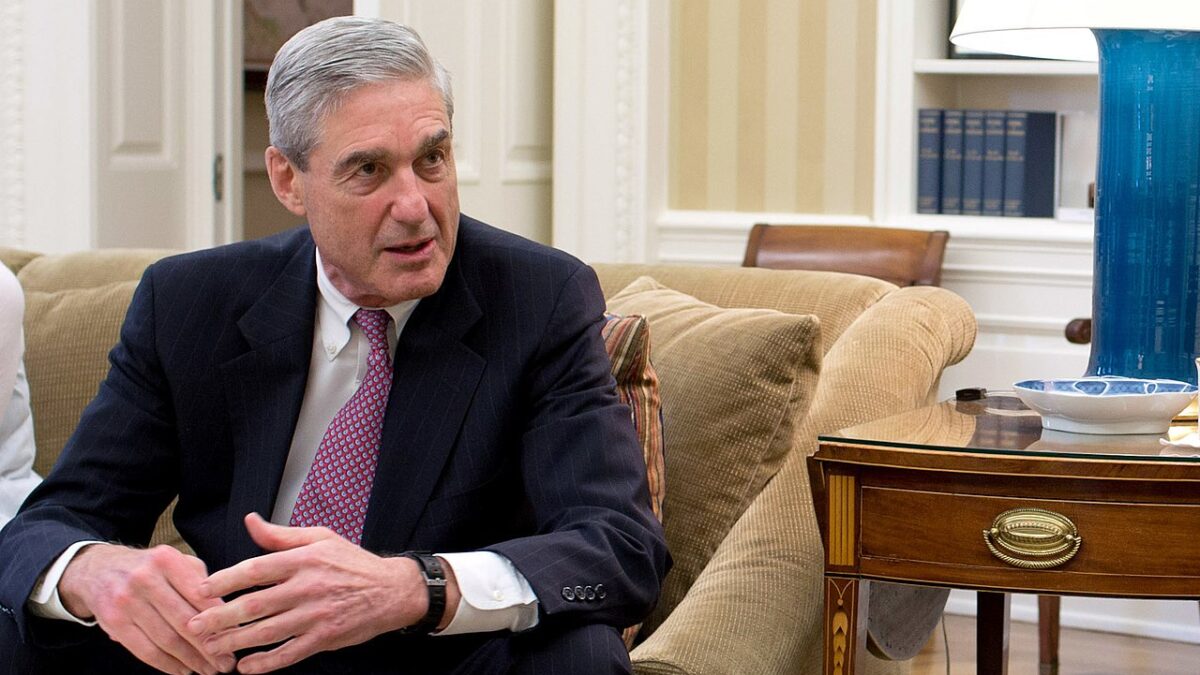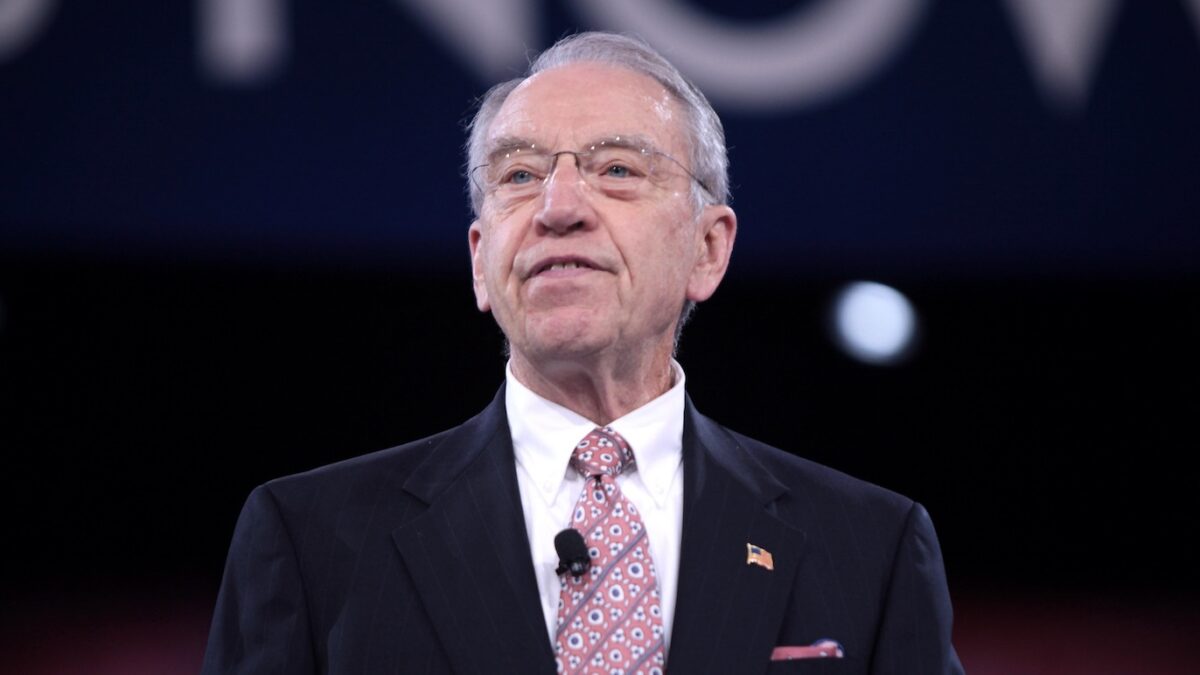Disgraced former RNC Finance Chair Elliott Broidy claims the special counsel’s office used email and text messages a retired CIA operative hacked from his computer for the state of Qatar. But according to a lawyer on Robert Mueller’s team, they never investigated the hack.
Broidy’s accusations and the supporting sworn declarations filed in his lawsuit against the alleged hacker suggest the underbelly of foreign lobbying now includes Middle Eastern foes engaging in commercial espionage to sway American foreign policy — with prosecutors ignoring the potential crimes unless they can take down a Republican.
In the midst of Mueller’s investigation into Donald Trump, prosecutor Zainab Ahmad questioned multiple witnesses about Broidy, a former top Republican fundraiser with connections to Trump and the Republican National Committee, according to recently filed declarations sworn under penalty of perjury. The special counsel’s interest in Broidy followed a series of damning high-profile articles about the then-RNC deputy finance chair based on material allegedly hacked from his computer.
The Wall Street Journal, for instance, reported Broidy “was in negotiations to earn tens of millions of dollars if the U.S. Justice Department dropped its investigation into a multibillion-dollar graft scandal involving a Malaysian state investment fund.” The New York Times published another article based on a purportedly hacked memorandum summarizing a private meeting between Broidy and Trump, in which Broidy allegedly lobbied the then-president to meet privately with the United Arab Emirates’ “de factor ruler, Crown Prince Mohammed bin Zayed al-Nahyan; to back the U.A.E.’s hawkish policies in the region; and to fire Secretary of State Rex W. Tillerson.”
A month after those stories ran, The Wall Street Journal and New York Times reported Broidy had paid hush money to a Playboy “model” with whom he had an affair, resulting in her pregnancy and the later abortion of their unborn baby. It is unclear, however, if the hack or the raid on Michael Cohen’s law office served as a source for that story; Cohen had negotiated the non-disclosure agreement for Broidy. Either way, the latter story resulted in Broidy quitting as the deputy of the finance committee of the RNC.
The press coverage apparently also grabbed the attention of Mueller’s office. In a recently signed declaration by Richard Gates III, Gates swore under oath that he was questioned in three different interviews about Broidy and that during his interrogations, the special counsel’s team presented Gates with “both emails and screenshots of WhatsApp messages” that Broidy claims were hacked from his computer.
“I was asked questions concerning Mr. Broidy’s interactions with Trump campaign and Trump Administration officials in 2016-2017, his efforts to expose Qatar’s extensive support of terrorist groups, his business dealings related to Romania, Malaysia, UAE and other ventures,” Gates’ sworn statement read.
Gates further attested that on Sunday, March 18, 2018, attorney Ahmad “specifically asked if [Gates] knew who had hacked Mr. Broidy.” Gates allegedly told Mueller’s team that he “did not have specific knowledge at that time beyond [his] belief that the State of Qatar was responsible for it.”
In contrast, Ahmad swore in a declaration that Broidy’s name never came up in her presence “related to the alleged hacking.” Rather, according to Ahmad, she was not present for much of the March 18 interview, which special counsel attorneys Andrew Weissmann and Greg Andres conducted, along with two FBI agents. Ahmad acknowledged she had joined the interview in the afternoon but that it continued after she left.
Significantly, Ahmad further claimed in her declaration that to the best of her “knowledge and recollection,” no one at the special counsel’s office investigated the alleged hacking of Broidy.
Why not? Was it because the special counsel’s office referred an investigation into the hacking to other components of the Justice Department? If so, why has nothing come of that investigation?
Potential Scandal
If not, though, this represents a huge scandal because it means Mueller’s team ignored the apparent hacking of an American citizen allegedly carried out at the request of a foreign country to influence American policy, while prosecutors then allegedly used the hacked materials to target the Trump-connected Republican.
Broidy’s civil lawsuits against those he claims are responsible for hacking his computer system and then feeding the stolen documents to the press include detailed allegations that, if true, suggest our government ignored the foreign targeting of Americans for political reasons.
Among others, Broidy sued Kevin Chalker, who is allegedly a former CIA officer, and Chalker’s cybersecurity company, Global Risk Advisors, LLC, with Broidy claiming Chalker and Global Risk Advisors are responsible for hacking his system. Broidy also filed a parallel lawsuit in a federal court in D.C. against one of Qatar’s top D.C. lobbyists, Nicolas Muzin, and others the former RNC moneyman claims bear responsibility for feeding his hacked materials to the media.
In his first lawsuit, Broidy alleged that Chalker, Global Risk Advisors, and others engaged in a “hack-and-smear operation designed to silence Broidy’s criticism of Qatar’s support for terrorism.” Broidy also claimed the state of Qatar funded the operation.
In his proposed Second Amendment complaint, Broidy further alleged that after the press onslaught based on the hacked materials began, Muzin texted a “public relations official[] who was involved in the media dissemination and use of the Broidy hacked materials,” writing: “It’s very good. We got the press going after Broidy,” and later celebrating that they put Broidy in Mueller’s “crosshairs.”
While the federal court originally tossed Broidy’s case against Chalker and Global Risk Advisors, concluding his complaint failed to connect the defendants to the hack-and-leak operation, Broidy has since filed an amended complaint with a declaration, signed under penalty of perjury, from a purported whistleblower.
In the sworn statement, the self-proclaimed whistleblower attested that he had been employed by Chalker’s company, Global Risk Advisors (GRA), or its affiliates and learned that “Chalker had knowledge of the Broidy hacking and GRA was responsible for the hacking.” The whistleblower further attested that “Chalker and GRA engaged in physical and electronic surveillance of Broidy” and that “Chalker and others at GRA took steps to hide and destroy electronic devices that contained information that would show involvement with the Broidy hacking.”
Cause to Investigate
From the filings in Broidy’s civil cases, there appears ample cause for the government to have investigated the hack. This is not merely because a private individual’s electronic communications were illegally accessed, but because the allegations, if true, would place responsibility for the hack on a foreign country seeking to advance its policy perspectives. Yet, according to Ahmad, the special counsel did not investigate the hack.
Unless another part of the DOJ did, here it appears partisan politics were in play again, as the Department of Justice would later charge Broidy with conspiracy to serve as an unregistered agent of a foreign principal in violation of the Foreign Agents Registration Act related to Broidy’s lobbying for a foreign national connected to the Malaysia embezzlement scandal. Broidy had also lobbied (unsuccessfully) for the return of a Chinese national to the People’s Republic of China, again without registering as required by law. President Trump would later grant Broidy clemency.
But what of those who hacked Broidy? And what about evidence of other high-profile lobbying by Democrats, such as Hunter Biden and his business partners? Are only the unregistered lobbyists connected to the wrong party targeted?
Then there is the press, which in 2018 had no problem reporting on Broidy’s affairs, lobbying and otherwise, based on illegally hacked or leaked materials. Yet by 2020, a purported “hack-and-leak” operation that did not exist made Hunter Biden and the Biden family pay-to-play scandal off limits.
The double-standard animating the press and prosecutors is bad enough, but Broidy’s allegations raise serious national security concerns. If our government really wants to counter malign foreign influence, the focus shouldn’t be on the new media and ordinary Americans, but on illegal foreign lobbying — no matter the political party of the unregistered lobbyist.
The Federalist requested comment from Andrew Weissmann, Zainab Ahmad, and Greg Andres, but none of the former Mueller attorneys responded to the inquiries.









